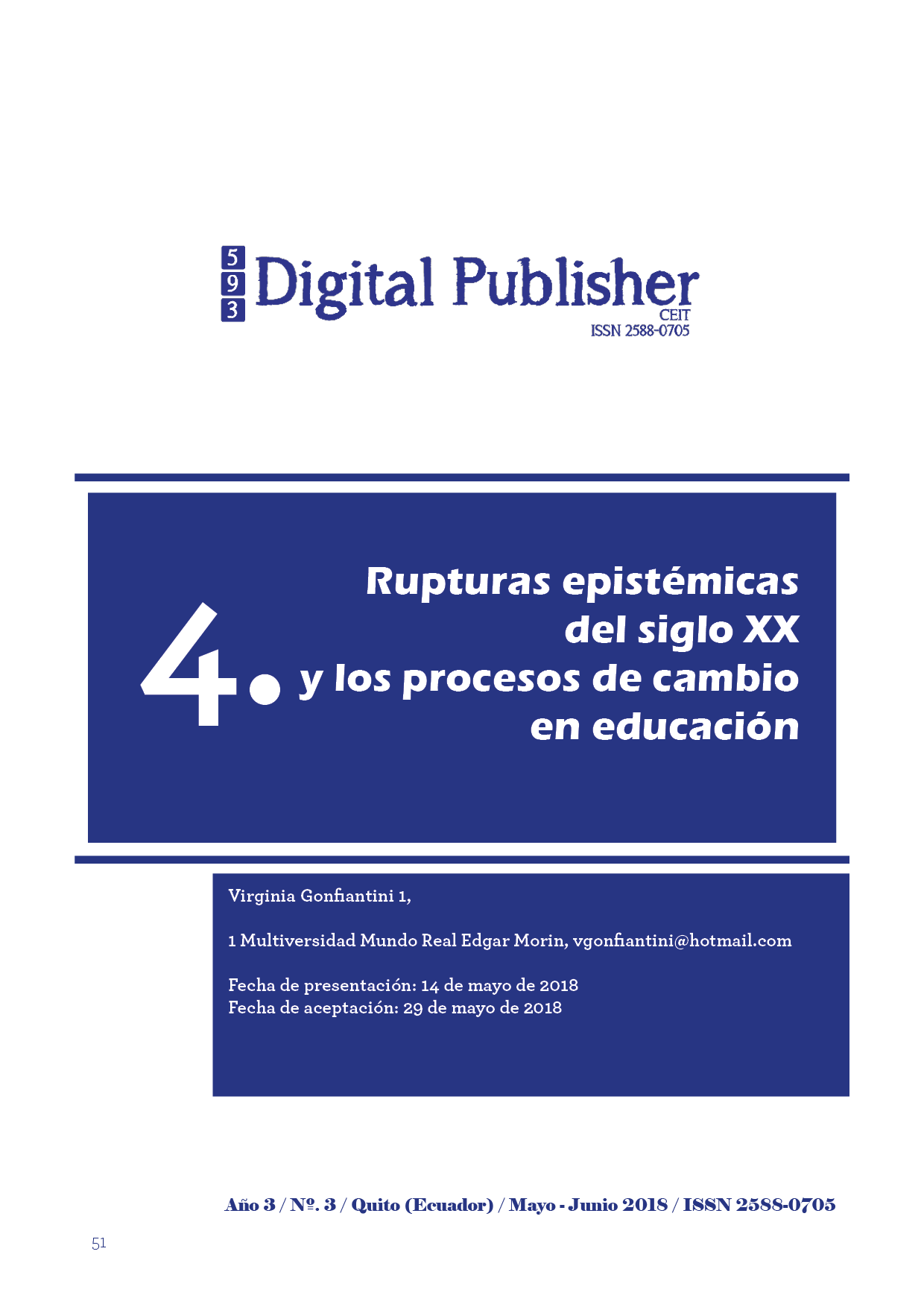Rupturas epistémicas del siglo XX y los procesos de cambio en educación
Main Article Content
Abstract
In this document, we approach the epistemic ruptures which started reconfiguring the concept of knowledge and scientific method of the Classical Modernity in the 20th century. We must consider that these ruptures transcend the theoretical and methodological aspect, because they refer to the concept of the cognitive subject itself, that is, we are discussing world views. The critical, historical and educational revision allows us to see how a disciplinary concept of knowledge, science and scientific method takes different dimensions, which is a paradigm of scientific investigation even to this day.
Within this legacy of fragmentary and divided knowledge of the relation cognoscente subject - known object, we find the greatest minds of the 20th century. Einstein, Planck, Bohr, Heisenberg, Schrödinger, Born, Poncairé, Curie, Prigogine and Morin from science, and Freire from education, start a new path when they challenge the classic postulates of knowledge, understanding physical processes without the intervention of the observer. They propose to build, from a different perspective, new scientific knowledge and educational processes for which the inherited disciplinary concept cannot provide answers.
And it is that paradox and crisis of modern knowledge where Edgar Morin starts thinking his complexity theories and outlining his hologramatic, dialogic and recursive principles from which he configures genuine and viable answers to the observed reality, which is not considered from the simplistic classic linearity but from randomness, uncertainty, nonlinearity and nondeterminism.
Downloads
Article Details
1. Derechos de autor
Las obras que se publican en 593 Digital Publisher CEIT están sujetas a los siguientes términos:
1.1. 593 Digital Publisher CEIT, conserva los derechos patrimoniales (copyright) de las obras publicadas, favorece y permite la reutilización de las mismas bajo la licencia Licencia Creative Commons 4.0 de Reconocimiento-NoComercial-CompartirIgual 4.0, por lo cual se pueden copiar, usar, difundir, transmitir y exponer públicamente, siempre que:
1.1.a. Se cite la autoría y fuente original de su publicación (revista, editorial, URL).
1.1.b. No se usen para fines comerciales u onerosos.
1.1.c. Se mencione la existencia y especificaciones de esta licencia de uso.
References
Cullen, C. (2008). “Entre desarrollo y educación; ética, ¿dónde habitas?” Con-ferencia. Recuperado de:
http://www.oei.es/historico/noticias/spip.php?article3339
Cullen, C. (1997).Crítica de las razones de educar. Temas de filosofía de la educación. Bs. As.: Paidós.
De Pomposo, A. S. F. (2015). La conciencia de la ciencia. Un juego complejo. México: Centro de Estudios Filosóficos, Políticos y Sociales. Vicente Lombardo Toledano.
Freire, P. (2008). El grito manso. Buenos Aires: Siglo XXI.
Freire, P. (2002). Pedagogía de la Autonomía. Buenos Aires: Siglo XXI
Geymonat, L. (1988). El pensamiento científico. Buenos Aires: Cuadernos.
Gonfiantini, V. (2016). “Formación docente y diálogo de saberes en el kairos educativo”, en Revista Sophia. N 21
Hegel, G. (1985). “Prólogo”. Fenomenología del Espíritu. México: Fondo de Cul-tura Económica.
Hobsbawm, E. (2007). Historia del siglo XX. Buenos Aires: Crítica.
Kuhn, T. (1975). La estructura de las revoluciones científicas. México: Fondo de Cultura Económica.
Marías, J. (1964). Historia de la filosofía y la ciencia. Madrid: Guadarrama.
Morin, E. y Viveret, P. (2010). ¿Cómo vivir en tiempos de crisis? Buenos Aires: Nueva Visión.
Morin, E. y Delgado C. (2016). Reinventar la Educación. Abrir caminos a la me-tamorfosis de la humanidad. México: Multiversidad Mundo Real Edgar Morin.
Prigogine, I (2017). Las leyes de caos. México: Ediciones Culturales Paidós.
Wallerstein, I. (1999). El fin de las certidumbres en ciencias sociales. México: UNAM.
Zea, L (1993). Introducción a la filosofía. La conciencia del hombre en la filoso-fía. México: UNAM.

